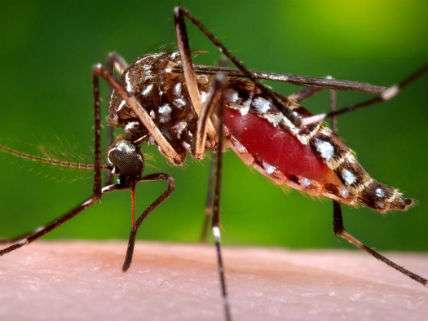'Friendly' GMO Mosquitoes Knock Back Dengue Fever by 91 Percent
If the FDA will let them, they could do the same thing here when Zika arrives

While the Food and Drug Administration and Congress dither over what to do about the high probability that the Zika virus will start spreading via Aedes aegypti mosquitoes later this year, GMO mosquitoes are reducing their numbers dramatically in tests in Brazil. The FDA issued a finding of no significant impact back in March, but at the behest of anti-biotech activists kept the comment period open until mid-May. Consequently, communities are not permitted to deploy biotech mosquitoes to protect their citizens. The technology acts by creating male mosquitoes that pass along a gene that is fatal to mosquito larva. Does it work?
In a press release, the company reports the results of a test deployment in the city of Piracicaba in Brazil:
Piracicaba's Epidemiologic Surveillance service released new data this week which showed a 91% reduction of dengue fever cases registered in the CECAP/Eldorado district, an area of 5,000 residents, in the 2015/2016 dengue-year as compared to the 2014/2015 period. The incidence decreased to just 12 cases in 2015/2016, the first year in which Friendly™ Aedes, the genetically engineered mosquitoes that fight wild Aedes aegypti, were released there, versus 133 cases in the previous year. According to Epidemiologic Surveillance the rest of the municipality saw a 52% reduction in dengue fever incidence during the same period, from 3,487 cases in the 2014/2015 period to 1,676 cases in 2015/2016.
Additionally, the overall incidence rate in CECAP/Eldorado for the dengue-year 2014/2015 was 195% larger than the rate recorded for the rest of the municipality. In the dengue-year 2015/2016, the rate in CECAP/Eldorado was 45% lower than the rate in the rest of the municipality.
Would releasing GMO mosquitoes help control Zika virus in the U.S.? Since Aedes aegypti is a vector for both dengue and Zika, the answer is very likely, yes. So get with it regulators: Free the Friendly Aedes!


Show Comments (86)